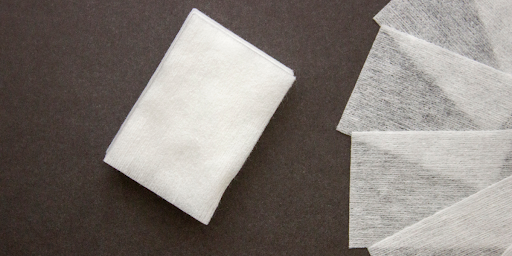
Selecting the right filter paper is a crucial step for anyone working in laboratories, industrial settings, or even specialized sectors like food, pharmaceuticals, and environmental testing. The right filter paper ensures accuracy, efficiency, and reliability in your filtration processes-whether you’re clarifying solutions, separating particulates, or purifying products.
In this comprehensive guide, we’ll walk you through everything you need to know about filter paper, from types and applications to tips on choosing the ideal grade for your needs.
Understanding Filter Paper: The Basics
What is Filter Paper?
Filter paper is a semi-permeable, porous paper sheet designed to separate solids from liquids or gases. It is a staple in scientific, industrial, and even daily applications, thanks to its versatility and efficiency in filtration tasks.
Key Properties of Filter Paper
- Porosity and Pore Size: Determines what size particles are filtered out.
- Flow Rate: How quickly liquid passes through the paper.
- Wet Strength: Ability to maintain integrity when wet.
- Material: Most commonly made from cellulose, but also available in glass fiber and synthetic blends for specialized uses.
Types of Filter Paper
1. Qualitative Filter Paper
- Purpose: Used for routine analysis where identifying the presence or absence of a substance is more important than measuring its exact amount.
- Features: Medium flow rate, retains fine particles, and typically leaves minimal ash after burning.
- Applications: Sample preparation, clarifying liquids, and general laboratory use.
2. Quantitative Filter Paper
- Purpose: Designed for precise analytical work, especially where accurate measurement of residues is required.
- Features: Ashless (leaves almost no residue after burning), high purity, and available in various grades for different filtration speeds.
- Applications: Gravimetric analysis, environmental testing, and quality control labs.
3. Specialized Filter Papers
- Glass Fiber Filters: Ideal for high-temperature and chemically aggressive environments. Excellent for filtering fine particulates and used in air monitoring and environmental testing.
- Non-Woven Filters: Made from rayon or polyester for high filtration efficiency and durability, often used in industrial process.
- Creped and Embossed Papers: Offer larger surface area and higher particulate holding capacity, making them suitable for fast filtration and high-volume applications.
Applications of Filter Paper
Laboratory Applications
- Sample Preparation: Removing solids before analysis.
- Chemical Analysis: Supporting qualitative and quantitative tests.
- Microbiology: Filtering cultures and media.
- Environmental Testing: Monitoring air and water quality.
Industrial Applications
- Food & Beverage: Clarifying juices, oils, and beverages.
- Pharmaceuticals & Cosmetics: Ensuring product purity and consistency.
- Chemical Processing: Purifying solvents, acids, and other chemicals.
- Air Filtration: Capturing airborne particulates in manufacturing environments.
Other Uses
- Automotive: Oil and fuel filtration.
- Electronics: Removing contaminants from microelectronic components.
- Daily Life: Coffee filters, air purifiers, and more.
How to Choose the Right Filter Paper
1. Define Your Application
Start by identifying what you need to filter (liquid, air, chemical, etc.) and the environment (lab, factory, field).
2. Consider Key Selection Criteria
Pore Size and Flow Rate
- Fine pores for small particles and precise analysis.
- Larger pores for faster filtration and higher volume.
Material Compatibility
- Cellulose for general use.
- Glass fiber or synthetic for harsh chemicals or high temperatures.
Strength and Durability
- High wet strength for vacuum filtration or heavy-duty industrial use.
- Creped or embossed for increased capacity.
Purity Requirements
- Ashless for gravimetric and quantitative analysis.
- Standard grades for routine tasks.
3. Choose the Right Format
Filter paper comes in sheets, discs, rolls, and custom shapes. Laxmi Industries, for example, offers tailor-made solutions to match your specific equipment and workflow.
Why Choose Laxmi Industries Filter Paper?
Laxmi Industries is a trusted manufacturer of specialty-grade filter papers, serving diverse sectors from laboratories to large-scale industries. Here’s what sets their filter papers apart
- Widest Selection: Normal and high wet strength grades, plain, embossed, creped, non-woven, and filter boards.
- Custom Solutions: Tailor-made papers in various formats, including discs and sheets for filter press systems.
- Quality Assurance: Consistent performance, optimized clarity, and reliable flow rates for every application.
- Industry Versatility: Used in food & beverage, pharmaceuticals, cosmetics, chemicals, and microelectronics.
Tips for Optimizing Filtration Performance
- Always match the filter paper grade to your application’s needs.
- Store filter paper in a dry, clean environment to maintain integrity.
- Use the correct size and shape for your filtration apparatus to prevent bypass or leakage.
- Consult with manufacturers like Laxmi Industries for guidance on specialized or custom filtration needs.
Conclusion: Make Your Filtration Count
Choosing the right filter paper can make all the difference in your laboratory or industrial processes. By understanding the types, applications, and selection criteria, you ensure accuracy, efficiency, and reliability in every filtration task.
Ready to elevate your filtration process?
Explore Laxmi Industries’ full range of filter papers and request a sample tailored to your needs. Visit Laxmi Industries Filter Paper or contact their expert team for personalized advice.
